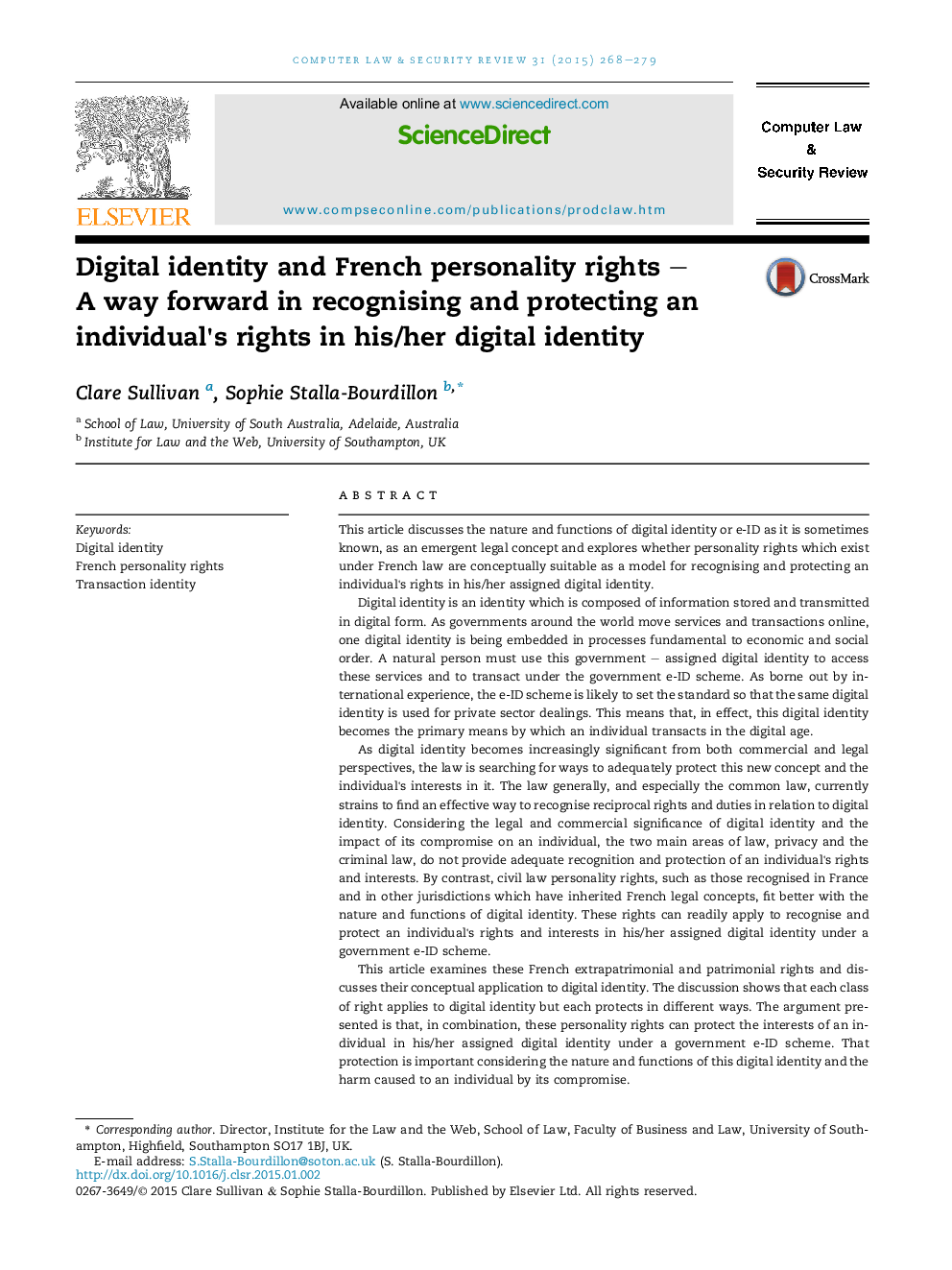| کد مقاله | کد نشریه | سال انتشار | مقاله انگلیسی | نسخه تمام متن |
|---|---|---|---|---|
| 467667 | 698100 | 2015 | 12 صفحه PDF | دانلود رایگان |

This article discusses the nature and functions of digital identity or e-ID as it is sometimes known, as an emergent legal concept and explores whether personality rights which exist under French law are conceptually suitable as a model for recognising and protecting an individual's rights in his/her assigned digital identity.Digital identity is an identity which is composed of information stored and transmitted in digital form. As governments around the world move services and transactions online, one digital identity is being embedded in processes fundamental to economic and social order. A natural person must use this government – assigned digital identity to access these services and to transact under the government e-ID scheme. As borne out by international experience, the e-ID scheme is likely to set the standard so that the same digital identity is used for private sector dealings. This means that, in effect, this digital identity becomes the primary means by which an individual transacts in the digital age.As digital identity becomes increasingly significant from both commercial and legal perspectives, the law is searching for ways to adequately protect this new concept and the individual's interests in it. The law generally, and especially the common law, currently strains to find an effective way to recognise reciprocal rights and duties in relation to digital identity. Considering the legal and commercial significance of digital identity and the impact of its compromise on an individual, the two main areas of law, privacy and the criminal law, do not provide adequate recognition and protection of an individual's rights and interests. By contrast, civil law personality rights, such as those recognised in France and in other jurisdictions which have inherited French legal concepts, fit better with the nature and functions of digital identity. These rights can readily apply to recognise and protect an individual's rights and interests in his/her assigned digital identity under a government e-ID scheme.This article examines these French extrapatrimonial and patrimonial rights and discusses their conceptual application to digital identity. The discussion shows that each class of right applies to digital identity but each protects in different ways. The argument presented is that, in combination, these personality rights can protect the interests of an individual in his/her assigned digital identity under a government e-ID scheme. That protection is important considering the nature and functions of this digital identity and the harm caused to an individual by its compromise.Conceptually, these civil law personality rights provide a sounder basis for protection than the current reliance on privacy and the criminal law. The nature of these rights and their historical international influence makes them a workable model for both civil and common law legal systems.
Journal: Computer Law & Security Review - Volume 31, Issue 2, April 2015, Pages 268–279